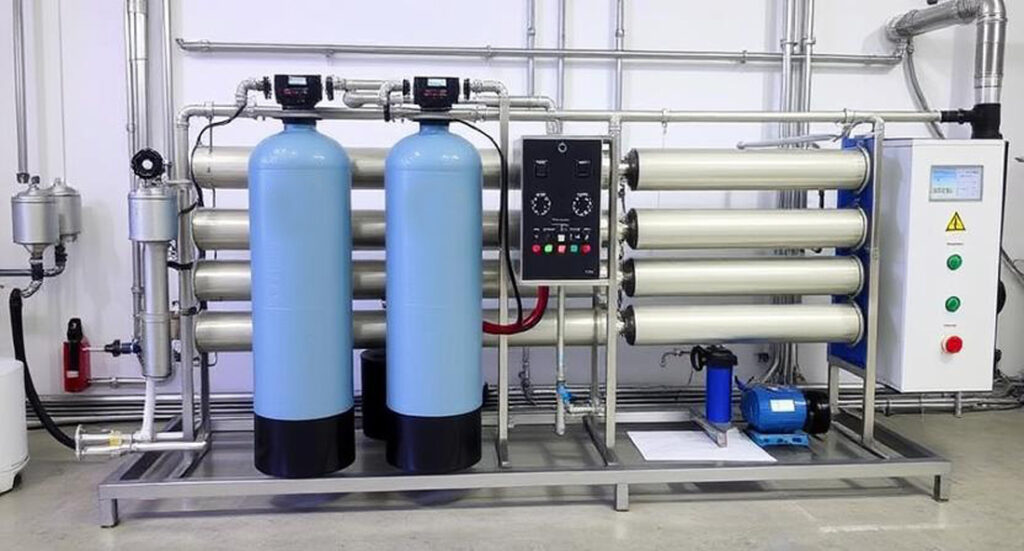
An Industrial Reverse Osmosis (RO) Plant is a large-scale water purification system designed to remove impurities, salts, and other contaminants from water using reverse osmosis technology. These plants are widely used in industries such as:
* Power Generation
* Pharmaceuticals
* Automobile Manufacturing
* Food and Beverage
* Electronics Manufacturing
* Chemical Processing
* Desalination (converting seawater into drinking water)
How It Works
- Pre-treatment: Water passes through filters to remove large particles, sediments, and chlorine (which can damage RO membranes).
- High-Pressure Pump: Pressurizes the pre-treated water to force it through semi-permeable membranes.
- RO Membranes: Allow water molecules to pass but block salts, bacteria, and other impurities.
- Post-treatment (optional): Adjusts the pH or adds minerals for specific uses.
- Waste Disposal: The rejected brine (concentrated waste water) is disposed of, often according to environmental regulations.
Key Components
* Feed Water Pump
* Cartridge Filters or Sand Filters
* High-Pressure RO Pump
* RO Membrane Modules
* Control Panel / PLC
* Flow Meters, Pressure Gauges, TDS Meters
* CIP (Clean-In-Place) System
* Post-treatment Units (UV, EDI, remineralization)
Typical Capacities
* Range from 1,000 liters/hour (LPH) to millions of liters/day (MLD).
* Custom-designed based on application and water quality.
Benefits
* High-quality water output
* Removes 95–99% of total dissolved solids (TDS)
* Reduces chemical consumption
* Energy-efficient compared to other desalination methods
Applications
| Industry | Purpose |
|---|---|
| Power Plants | Boiler feed water |
| Pharmaceuticals | Ultra-pure water for formulations |
| Food & Beverage | Ingredient water, CIP processes |
| Electronics | High-purity water for wafer cleaning |
| Seawater Desalination | Drinking water production |



